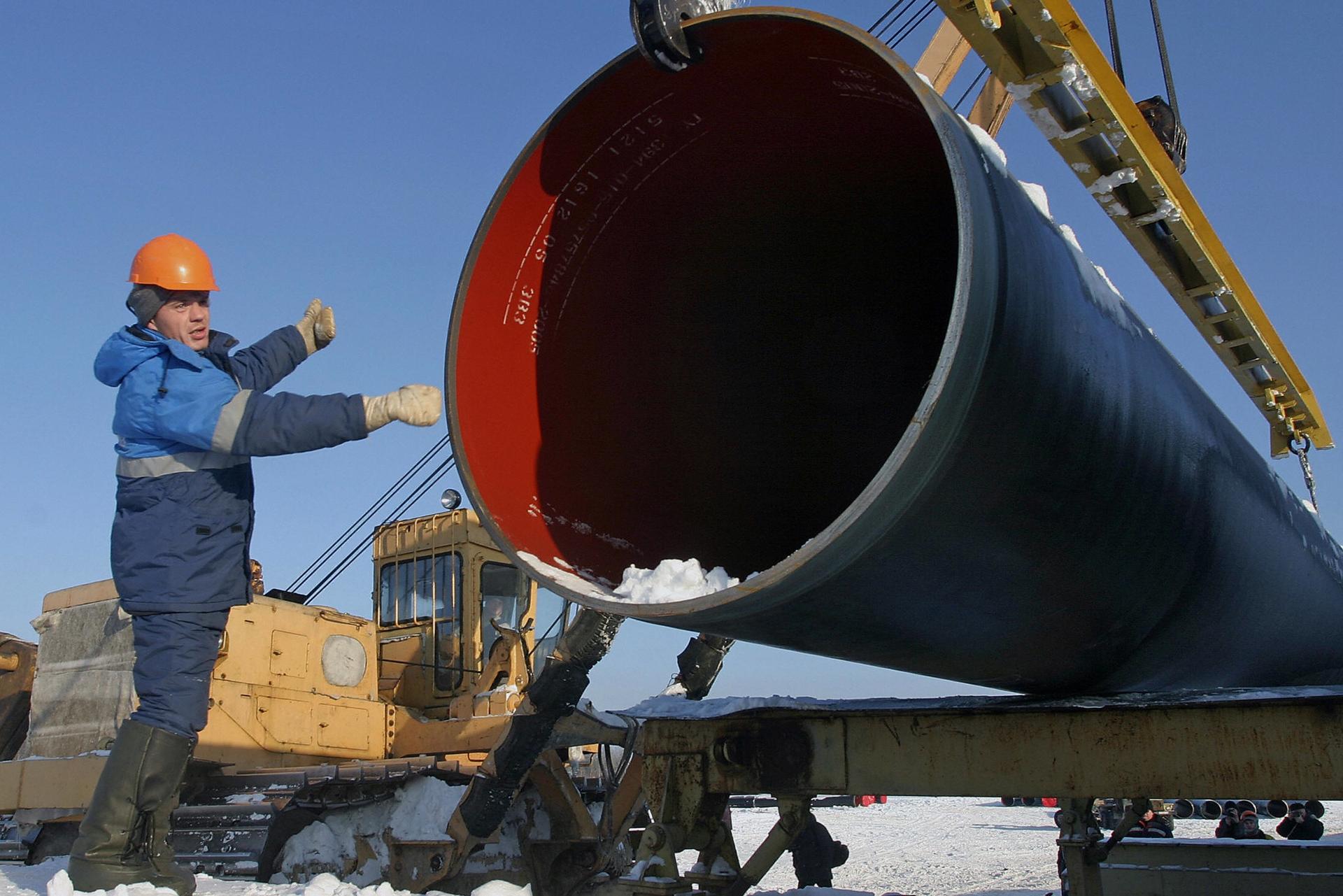Russia to break ground on new gas pipeline to Europe
It’s not clear whether Gazprom’s costly South Stream pipeline will be a financial boon or drain for the Kremlin.
MOSCOW, Russia — After years of deal-making brinksmanship with European rivals, Gazprom is surging ahead by launching construction Friday on a major new pipeline it hopes will cement its grip over Europe’s energy supplies.
But at a time when new developments in the global energy market are diversifying supplies and driving down prices, experts are split over whether the Russian energy giant’s controversial and expensive South Stream pipeline to Southern and Central Europe will become a boon or a drain for the Kremlin.
For now, they have one main recommendation: wait.
“This is a medium-term phenomenon,” says Jonathan Stern of the Oxford Institute for Energy Studies.
Long in conceiving, the $20 billion project is designed to bypass Ukraine and Belarus, avoiding potentially crippling European cut-offs by piping gas directly to Austria through the Black Sea and the Balkans. Half funded by Italian Eni, France’s EdF and German Wintershall, it’s expected to start pumping up to 63 billion cubic meters of gas a year starting by late 2015.
Many Europeans, who rely on Russia for a quarter of their gas, are feeling ripples of apprehension.
South Stream has attracted jeers from critics who see it as a costly incursion into European energy markets, where Moscow has forged deals with individual countries such as Serbia, Bulgaria and Italy to ensure Europe remains largely reliant on Russian gas. Some believe South Stream's main aim has been to derail the EU's plans for its Nabucco pipeline, designed to pump gas from Central Asia to Europe around Russia.
Last month, Gazprom gave Bulgaria a 20 percent discount on gas for the next six years. It had also signed up for Nabucco.
The Kremlin is under pressure from the development of liquefied natural gas, or LNG, which is becoming a prominent force in Europe’s energy markets. Although expensive, LNG production in Germany, France and other European countries is already influencing Gazprom’s pricing.
Alexei Kokin, a senior oil and gas analyst at URALSIB Capital in Moscow, says the fast-developing trend toward LNG has convinced Gazprom it needs to lock smaller countries into Russian deals while it still can.
“One of the ideas behind the pipeline is to solidify this dominance, to tighten the grip and make it long-term,” he said, “and to exclude any potential LNG terminals in any of these countries.”
Gazprom plans to replace its existing gas contracts with South Stream countries with stricter agreements that will be “more difficult to question,” he said.
However, that may not be enough. Some experts suggest a “revolution” in the development of shale gas may also eventually threaten Moscow’s energy hold on Europe by offering an alternative source that would drive down prices.
Currently under way in the United States, the exploitation of shale gas is generating fierce debate across Europe about its future potential, as well as the environmental consequences of extracting it — hydraulic fracturing, also known as “fracking."
Russian President Vladimir Putin has taken notice.
"We must take into account current developments and have a clear view of how the [shale gas] situation will develop not only in the next two to three years, but through the next decade," he said during the launch of an Arctic gas field in October.
But Stern says the shale gas revolution seems far off, even “irrelevant,” in Europe.
“Shale gas outside North America is hype,” he said. “It may become a significant reality in the 2020s, but so far we don’t know.”
While North American LNG from shale gas may eventually threaten Gazprom’s European prospects, he added, that would happen by 2015, around the time South Stream will have become operational.
The pipeline will probably top the agenda during a Russia-European Union summit later this month. European Energy Minister Gunther Oettinger has already extended an olive branch, saying the EU welcomes the project and looks forward to hashing out the details at the summit in Brussels.
But the summit and South Stream’s launch come at a particularly sensitive time for relations between the two sides. In September, the European Commission (EC) launched an anti-monopoly probe to investigate whether Gazprom has played unfairly in its dealings with individual EU countries.
Moscow responded with a healthy dose of sabre rattling, accusing the EC of forcing price concessions for East European countries at Russia’s expense.
More from GlobalPost: Greece tops Europe in corruption ranking
Arkady Moshes of the Finnish Institute of International Affairs believes the probe is more of a business matter rather than a political one, pushed up the EU’s agenda by high prices for Russian gas.
He says worries about Gazprom's stranglehold over Europe are overstated, saying the energy trade is a “two-way street” of interdependence in which Russia is just as beholden to European cash as Europe is to Russian gas.
“There was a mistaken perception in Europe, which was very strong for years, that this was a unilateral dependence of Europe on Russian supplies,” he says. “But in reality, Russia has always needed this revenue. Time is on Europe’s side.”
Our coverage reaches millions each week, but only a small fraction of listeners contribute to sustain our program. We still need 224 more people to donate $100 or $10/monthly to unlock our $67,000 match. Will you help us get there today?
